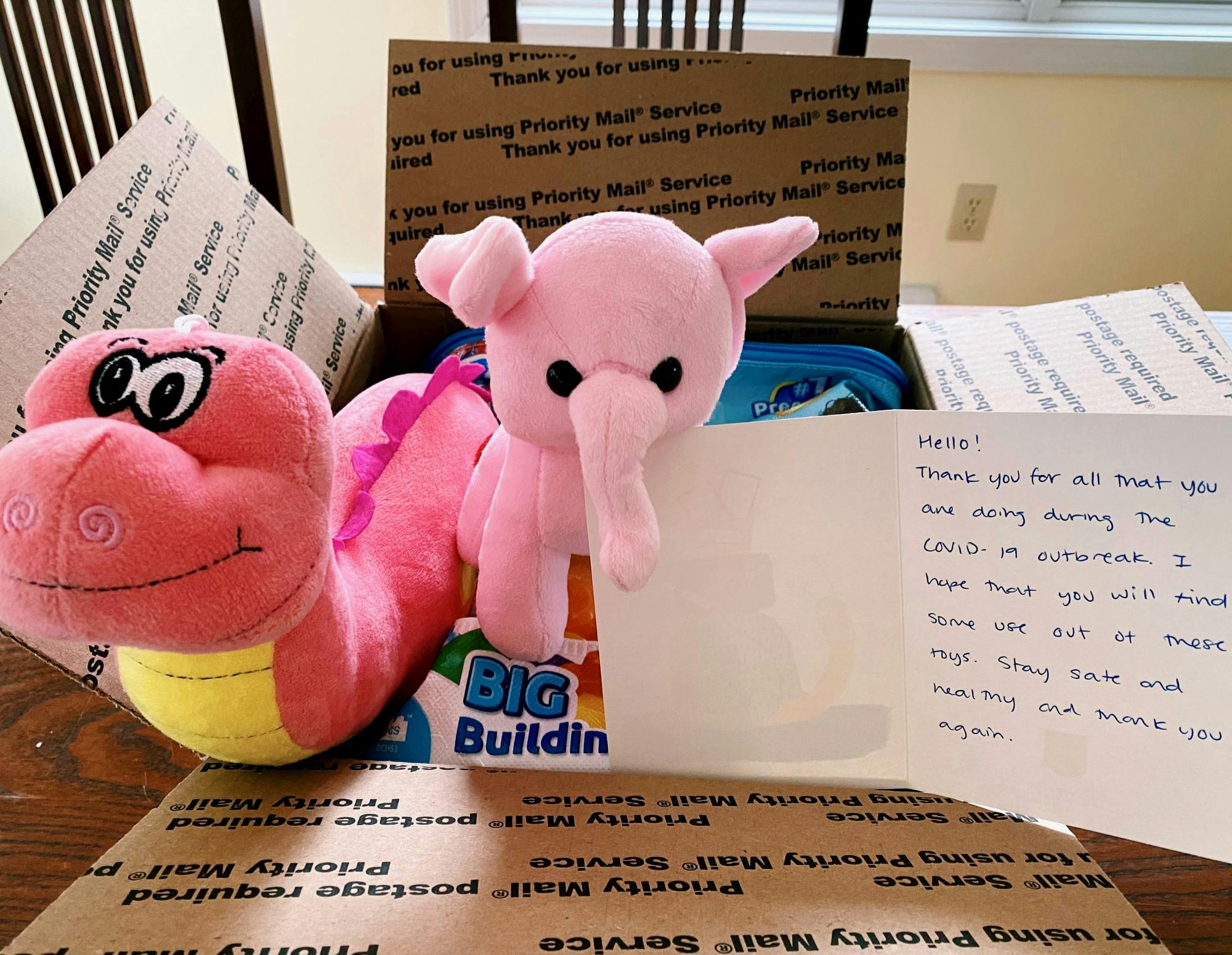Two Dartmouth students have joined together to help essential workers amid the COVID-19 pandemic. Amy Guan ’20 and Rine Uhm ’22 have built an online platform to match essential workers with donors to provide them with everything from children's toys to soap and shampoo.
Guan and Uhm, former roommates, came up with the idea for the platform, called Give Essential, on April 8. By April 10, they had the website up and running. Workers in essential jobs who are unable to work from home during the pandemic — such as grocery clerks and delivery drivers — can use the online platform to identify things they need, from COVID-19 protection to toiletries to games to gift cards. Donors can then fill out a form detailing what they are able to provide.
Give Essential facilitates matches between requests and donations, then provides donors with information about how to mail, hand-deliver or electronically deliver items to workers, usually in the donor’s area, according to Uhm. She added that workers can choose whether or not to provide their names.
Guan said that she reached out to Uhm after noticing a lack of support for certain essential workers.
“I happened to start noticing a lot of news about how grocery delivery drivers are being mistreated — how they often lack protection, how they aren’t getting pay raises — and I thought this was a really huge problem,” Guan said.
The pair began brainstorming ways they could help from home. They had taken ECON 77/PBPL 43, “Social Entrepreneurship” together during the winter term and realized what they were seeing is what’s known as a “resource mismatch”: a term indicating a distribution problem, where those who need certain things don’t have them, and other groups have a surplus.
“We realized a lot of the items [essential workers] need are things that people have lying around their house,” Guan said. “My family has a lot of extra kids toys, and those toys could be put to better use for single mothers who can’t stay home with [their] children.”
Once the pair launched the website, they began reaching out to peers for additional support. Luiza Odhiambo ’21 and Kaitlyn Kelley ’22 both joined the team, with Odhiambo working on operations and Kelley working on outreach. Now, they have a team of over 30 volunteers who facilitate matches, work on the website, create social media content and reach out to alumni and students to help the organization, Kelley said.
After Give Essential’s launch, the organization reached over 300 essential workers in under 24 hours, according to Uhm. Since then, Give Essential has been able to reach over 1500 essential workers and over 500 donors. There are about 100 matches currently in progress.
The essential workers served are primarily grocery store workers, delivery drivers, nurses and EMTs, Guan said. She added that currently, participating essential workers are fairly evenly distributed across the country, from California to New Jersey.
Odhiambo said that she has spent lots of time reading stories from the essential workers requesting donations and said that she felt compelled to meet their often small requests, which stood out despite their difficult circumstances.
She said that one health care worker making a request through Give Essential went to New York to do pandemic-related volunteer work. The worker described wearing an N95 mask, which they said chafes at their skin. The worker requested soap and lotion.
“That one really touched me, because that’s someone who’s risking their life every day and all they wanted was lotion for their skin, because they packed so quickly to get to New York to help,” Odhiambo said. “The least we could do was connect them with someone to assist them along those lines.”
Throughout the process, the team has been grateful for the support they have found through Dartmouth connections. Guan said that lawyers in the Dartmouth community have helped with privacy and legal issues, and students and alumni have given advice and helped to spread the word.
“It's been incredibly cool to be able to tap into the Dartmouth community and get their support,” Guan said.
Maya Velez ’21, a volunteer for Give Essential and the philanthropy and programming chair of Kappa Delta Epsilon sorority, is working to expand Give Essential, partially through outreach to Greek houses. She said that she appreciates the way that it serves people who often go unnoticed.
“What I really liked about Give Essential was that it was helping the invisible front line,” Velez said. “When you hear ‘essential worker,’ you think of protective services or hospitals, but you don’t necessarily think of the grocery store clerk, the Walmart clerk or the public transportation officer or all these other people who are risking their lives to make sure your town stays up and running.”
Velez added that her outreach to Greek houses is still in the preliminary stages.
Jessica Weil ’21, the philanthropy chair of Sigma Delta sorority, has been in contact with Velez and has encouraged members of her sorority to donate groceries through Give Essential.
She said that she likes the Give Essential model since it does not put much financial strain on donors.
“What makes Give Essential different is they ask for items instead of just money,” Weil said.
Velez also emphasized the simplicity and ease of signing up to be a donor, saying it took her under five minutes to fill out the survey.
Uhm added that the simplicity of the donor registration makes Give Essential a good choice for many people who want to support workers in need.
“I think Give Essential is perfect for someone who wants to help but doesn’t know how to help,” Uhm said.




